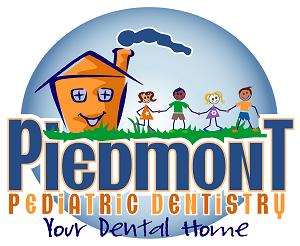Q. What is a Pediatric Dentist (Pedodontist)?
A. In the same way that pediatricians are trained to meet a child’s medical needs, pediatric dental specialists are uniquely qualified to protect your child’s oral health using the most up to date evidence based approaches in a delightfully friendly open treatment area. Pediatric dentists have an additional 2-3 years of training at university and/or hospital pediatric facilities in addition to 4 years of dental school and 4 years of college study. The training emphasis focuses on the study of children’s growth and developmental milestones as it relates to oral health. They learn how to deal with the behavioral aspects of children, how to make them feel comfortable, and to make the experience pleasant. Also, they are trained and qualified to treat special needs patients.
Q. What dental problems could my child have?
A. Some dental problems begin very early in life. One of the primary concerns is tooth decay. Another problem is gum disease. About 40% of children 2-3 years old have at least mild inflammation of gum tissues. Oral habits (such as thumb-sucking) should also be checked. The earlier the dental visit, the better the chances of preventing problems and establishing a balanced oral environment.
Q. Why are baby teeth so important?
A. Primary teeth are important because they help with proper chewing and eating, help in speech development and add to an attractive appearance. A child who can chew easily, speak clearly and smile confidently is a happier child. Healthy primary teeth allow normal development of the jaw bones and muscles, save space for the permanent teeth and guide them into place. If a baby tooth is lost too soon,permanent teeth may come in crooked. Decayed baby teeth can cause pain, abscesses, infections, and can spread to the permanent teeth and other areas in the body. Also, your child’s general health can be affected if diseased baby teeth aren’t treated. Remember, some primary molars are not replaced until age 10-14, so they must last for years.
Q. What should I tell my child about the first dental visit?
A. We suggest you prepare your child the same way that you would before their first hair-cut or trip to the shoe store. This will not be the frightening experience you may remember from your youth. If you are nervous about the trip, then the less you say the better. You cannot hide your anxiety from a child (they have a radar for these things). A child-friendly dental book reading is recommended. Have fun going through it with your child. Your child’s reaction to his first visit to the dentist may surprise you.
Q. What about preventative care?
A. Tooth decay and children no longer have to go hand in hand. At our office we are most concerned with all aspects of preventive care such as:
- Preventive check-ups with proper oral hygiene instructions and evaluation of normalcy of all oral and facial tissues including saliva
- Fluoride treatment to protect enamel
- Nutrition counseling customized to your child’s needs
- Sealants – acrylic-based coatings that are bonded to the chewing surfaces of decay prone back teeth.
These are just one of the many ways we will set the foundation for your child’s lifetime of good oral health.
